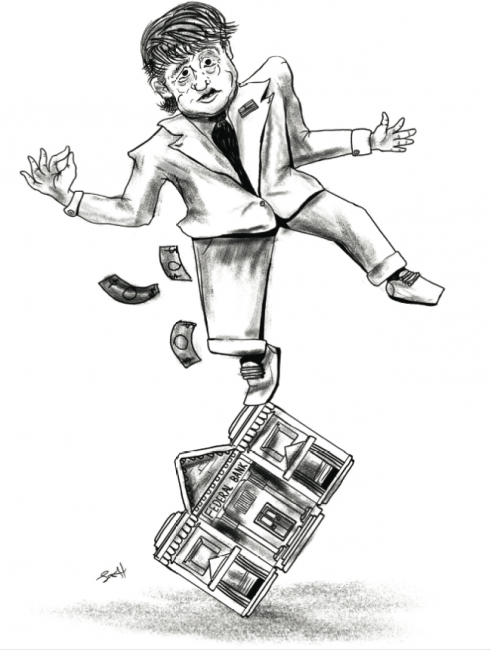Market volatility within Trump’s America
The stock market is inherently volatile—investors will be hesitant in the face of uncertainty and rally when conditions are more favorable.
Stock prices fluctuate constantly; supply and demand— or the amount of buyers versus the amount of sellers in the market—is always changing. One of the biggest causes of this market volatility is economic and political uncertainty.
Case in point: the 2016 U.S. presidential election.
All presidential elections have a dramatic, if not extremely short-lived, impact on the market because investors tend to react strongly to the uncertainty that comes with a changing political atmosphere.
To add fuel to fire, the 2016 presidential election was arguably the most tumultuous and staggering in recent memory.
As the evening of Nov. 8 came to a close, now-President Donald Trump took a shocking lead over opposing candidate Hillary Clinton to clinch the title of president-elect.
The stock market reflected the shock felt nationwide with the Dow Jones Industrial Average dropping to 800 and the S&P 500 dropping by 5 percent. The shock factor of the election was felt in foreign markets as well; global markets also dropped considerably the evening of Nov. 8.
Since then, markets have been on a dramatic upswing; Dow Jones reached a record high Jan. 25, clocking in at 20,000 for the first time. With one of the most antagonistic and unpredictable leaders this country has had in decades, why are markets reacting so positively?
People say there has never been a more business-friendly president than Trump. This assertion has certainly been reflected in the market; bank stocks, like Wells Fargo, have soared in anticipation of a Trump presidency. Trump’s promised policy of more deregulation of financial institutions has increased investor confidence in the financial sector. This is often true after the election of Re- publican presidents; conservative economic policy, like deregulation, often excites and assures investors.
But will this bull market continue to surge on for the duration of Trump’s term?
If we point toward historical trends, like the most recent market trend under Obama’s administration, the answer is no.
Markets do not stay the same, hence why we call them “volatile” in the first place. Market trends during the first few months of a new presidency do not necessarily reflect how trends will continue for the entirety of their term.
When former President Obama first came into office in 2008, the U.S. was in the most severe recession since the Great Depression, and markets were at a record low.
After eight years in office, Obama ended his term with market performance at an all-time high.
Though there are many factors that contributed to the bounce back of the American economy under Obama, the market rebound can be attributed to the cyclical nature of markets.
Obama came in during a trough, or low point, so it is natural that he left office when the market had cycled around to a peak.
Conversely, Trump began his term with the market at a peak, so it makes sense to theorize that by the time he leaves office, the market will be at a trough.
Also, can Trump really fulfill all of his business-friendly promises?
All we can do is wait and see. Markets have been surging since Trump took office partially because investors have high hopes for his business-friendly approach to economic policy.
However, it is always difficult for presidents to push through their agenda, as Congress has to cooperate and the legislative process is long and slow.
Deregulation measures for banks and tax cuts for businesses could take a long time to be enacted, if at all. “The Trump Effect,” as Kellyanne Conway has dubbed it, could all just be a short-lived market hype.
As the saying goes: “the best predictor of future behavior is past behavior.” While it is true that the best predictor of future behavior is past behavior, in terms of the stock market, past performance is not necessarily a good predictor of future performance.
We cannot predict what the future will hold: what is true today most likely will not be true tomorrow. As we have all learned in the last election year, surprises are inevitable; in Trump’s America, who knows what will come in the next tweet, executive order or market fluctuation.
Ultimately, the one thing we can always be certain about is uncertainty.







